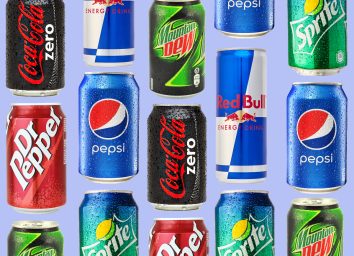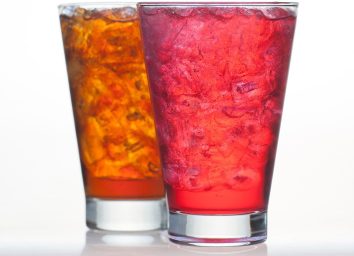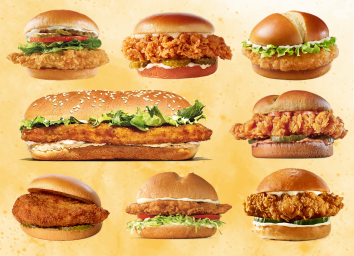30 Facts About Soda That You'll Find Totally Disturbing
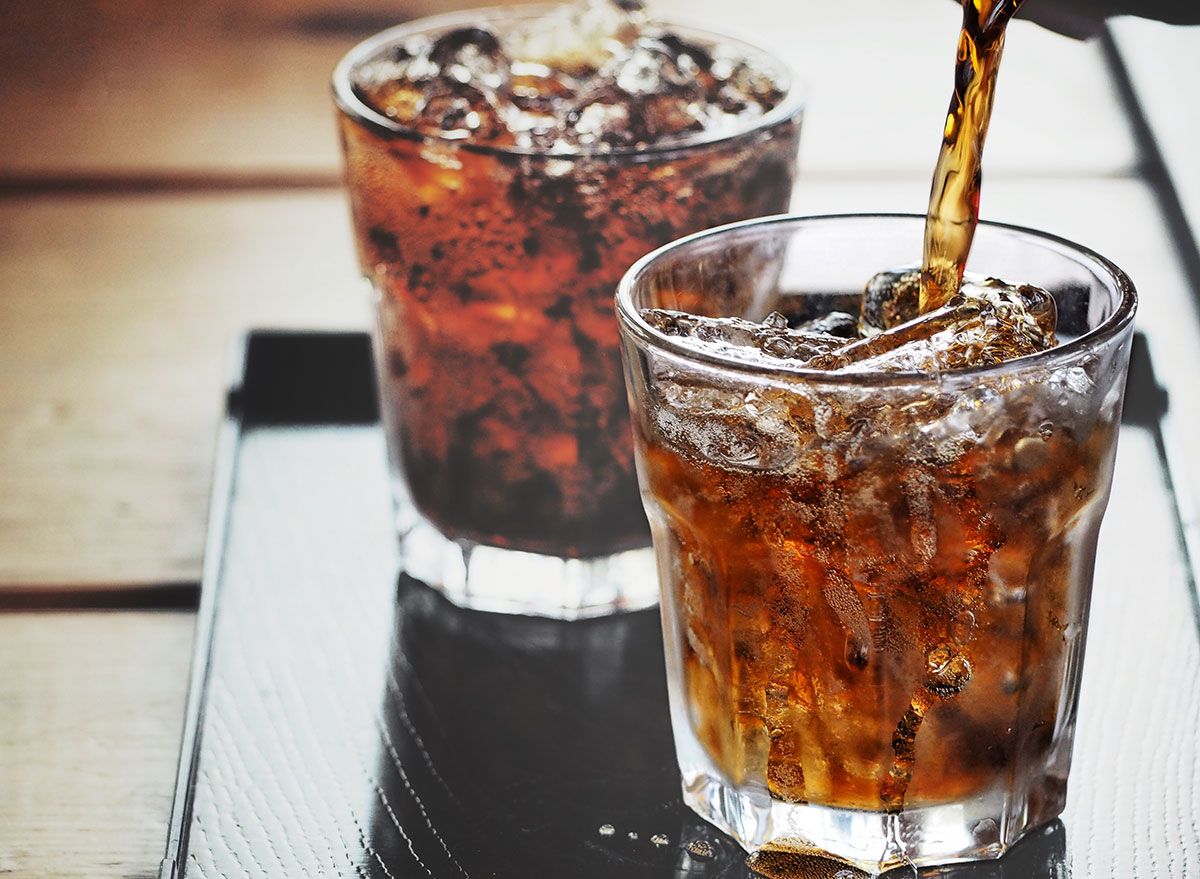
Whether you're a former soda addict or not, you're probably already aware of its bad effects on your health. Loaded with added sugars, caramel coloring, and other additives, there's a lot more to the syrupy-sweet soft drink than what's listed on their nutrition and ingredients labels. So what exactly are you drinking? We list the top 30 most disturbing facts about soda. Then, check out The Best & Worst Sodas in America—Ranked!
It has toxic chemicals.

4-methylimidazole (4-MEI) is formed when making the artificial caramel coloring found in many sodas. A 2014 study from Consumer Reports and the Johns Hopkins Center for a Livable Future discovered that 4-MEI can be found in varying levels in a sampling of 110 soft drink samples and diet colas. Ingesting this toxic chemical could increase your risk of developing cancer, said the research team, although the Food and Drug Administration says it's not dangerous to consume food or beverages with 4-MEI in them, as you would have to drink more than 1,000 cans of soda each day to experience any of the health concerns from 4-MEI. Still, knowing you're ingesting this stuff willingly is enough to tell you to put the can of soda down.
It can lower fertility.

If you're planning on having kids anytime soon, it would be prudent to put down the soda for a while, says a 2018 study published in the journal Epidemiology. Researchers surveyed nearly 5,000 couples and found that just drinking one or more sugar-sweetened drinks (like soda) every day, by either the man or the woman, led to a lower chance of getting pregnant.
It may increase your risk of stroke.

Avoiding a stroke is a goal most of us can get behind to quit soda for good. A study published in the journal Stroke—which studied 2,888 people over a 10-year-span and monitored them for stroke and dementia—reported that those who had at least one diet soda a day increased their chance of either ailment by three times.
RELATED: Warning Signs You're in Danger of a Stroke, Says CDC
It can bump up bad cholesterol.

Clogged blood vessels may be another reason to avoid soda, as a 2015 study from The American Journal of Clinical Nutrition has found that subjects consuming drinks with low, medium, and high amounts of high-fructose corn syrup for just two weeks had increased levels of LDL, or "bad" cholesterol, and triglycerides circulating through their bloodstream. This shows a direct link between added sugars in beverages and the risk factors for developing cardiovascular disease.
It can make you dependent on sugar.

When you're stressed and tired, you tend to reach for sugary, high-fat foods, which is why many people go for a glass of the bubbly drink. According to research in The Journal of Endocrinology & Metabolism, drinking sugar-laden beverages, such as soda, can help relieve stress by blunting cortisol, the stress hormone. Because of the emotional response that sugar gives you, it leads you to consume even more of the sweet stuff.
It may lead to diabetes.
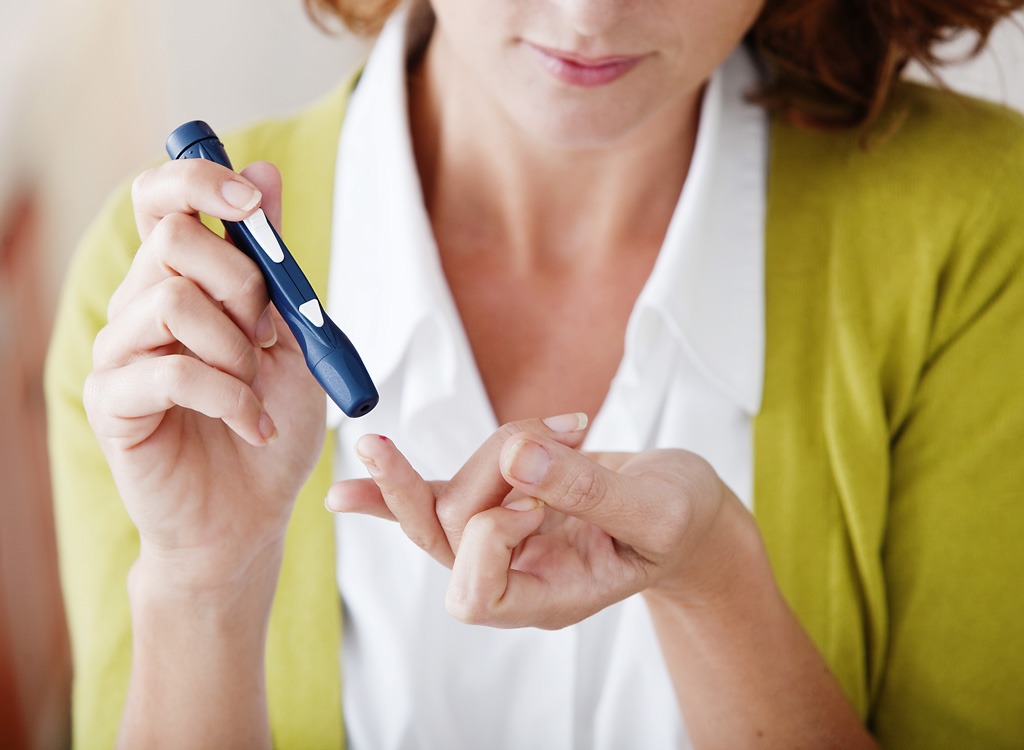
More than 100 million Americans live with diabetes or prediabetes, according to the Centers for Disease Control and Prevention (CDC). And drinking soda may be part of the reason the metabolic disease is so rampant, according to a study published in Global Public Health that links it to the high-fructose corn syrup often found in the drink. Out of 42 countries studied, those with the highest HFCS consumption had an almost two percent increase in diabetes vs. countries that don't use the ingredient.
It creates belly fat.

Concerned about getting a fat belly as you age? Then you might want to eschew switching to diet soda sessions instead of the sugar-laden soft drinks, according to research from the Journal of the American Geriatrics Society. The study of almost 1,000 adults aged 65 and older found that the daily diet soda slurpers had a waist circumference almost three inches bigger than those who didn't drink a diet beverage.
It can increase blood pressure.

Having hypertension, or high blood pressure, is one of the surest signs of a bigger issue with your cardiovascular system. A 2012 study from the Journal of General Internal Medicine that looked at over 150,000 people showed that drinking sugary beverages like soft drinks that contain high-fructose corn syrup is linked to a greater incidence of high blood pressure.
It can erode teeth enamel.

If you've ever seen photos of drug addicts who've been using methamphetamines for a long period, the almost universal attribute is seriously jacked up and rotten teeth. Research published by the Academy of General Dentistry found that the citric acid in soda can work in a similar way on the enamel of teeth, leading to erosion and decay.
It's high in calories.
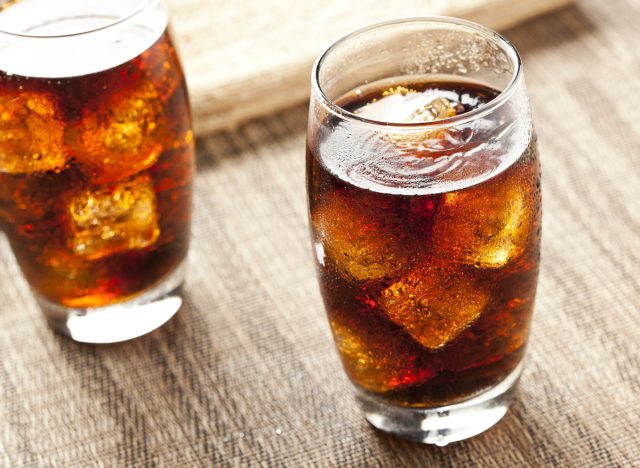
You already know that weight gain starts by consuming more calories than you burn. If you're trying to lose weight, drinking a can of coke every day isn't the best choice. A 12 oz can of Coca-Cola, for example, has 140 calories and 39 grams of added sugars, and a 12 oz can of Pepsi has 150 calories and 41 grams of added sugars. If you enjoy a can with every meal, that's an additional 420 or 450 calories a day.
It can make you age faster.

If you're downing soft drinks on the regular, that indulgence affects your health as well as your appearance. Studies have shown that a diet high in sugar could be the blame for breakouts, wrinkles, and other signs of aging skin. Read up on 6 Things Your Skin Is Telling You About Your Diet.
It can harm your kidneys.
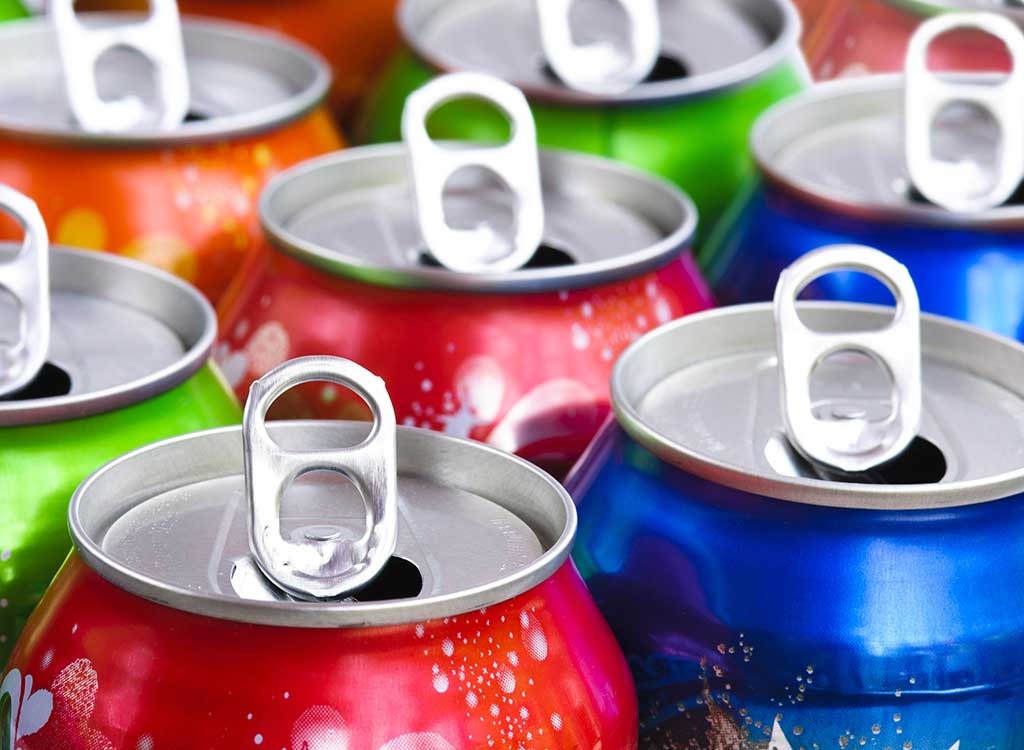
Your kidneys are important for filtering out all of the toxins that accumulate in your body every day, but if you're drinking soda on the regular, their functioning could be compromised, according to a 2011 study from Harvard Medical School. They looked at data on more than 3,000 women over the course of 11 years and found that a high-sodium diet, which is usually associated with drinking artificially sweetened drinks, like diet soda, can lead to a reduction in kidney functioning.
It can lead to childhood obesity.

For parents worried about the health and fitness of their children, limiting or eliminating sugary drinks like soda and fruit juices can go a long way in keeping them from becoming obese. A study from Pediatrics showed that children and adolescents derive 10 to 15 percent of their total calories from sugar-sweetened beverages such as soda and fruit juice.
It increases your heart disease risk.
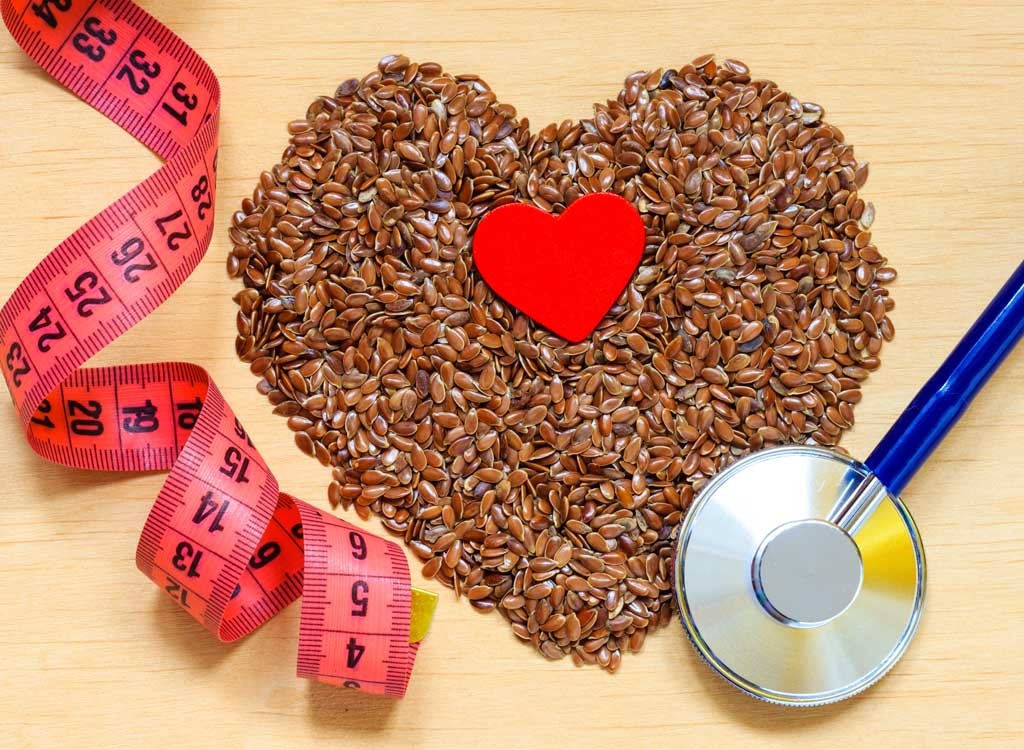
Heart disease is one of the leading causes of death in the U.S., and drinking diet and regular soda has been linked to an increased risk, says research from the American Heart Association. They reported that those who drank one or more sodas a day had a 25 percent greater risk of having high levels of triglycerides in their blood and a 32 percent higher risk of showing low levels of HDL, or good, cholesterol.
It can make you fatter.

A 2017 study that was presented at the annual Endocrine Society meeting reported that ingesting sucralose—one of the most popular artificial sweeteners used in soda—can activate the genes for fat production. Scientists put sucralose on stem cells and found that after 12 days there were more genes expressing markers for fat creation and inflammation, plus more fat droplets in the cells themselves.
It's a main source of calories.

In a study from Tufts University, researchers found that sugar-sweetened beverages are the primary source of calories for Americans, instead of white bread. So if you're consuming three cans of coke with every meal, you could easily be adding 420 calories to your daily calorie budget without realizing it.
It may make muscles weaker.

Nobody wants to have weaker muscles, especially as you age, but the more soft drinks you consume, the more you could accelerate the loss of strength, research suggests in the International Journal of Clinical Practice. Scientists found that drinking a few liters of soda per day can negatively impact your potassium levels in the body, which leads to hypokalemia and reduced muscle functioning.
It can cause you to eat unhealthily.
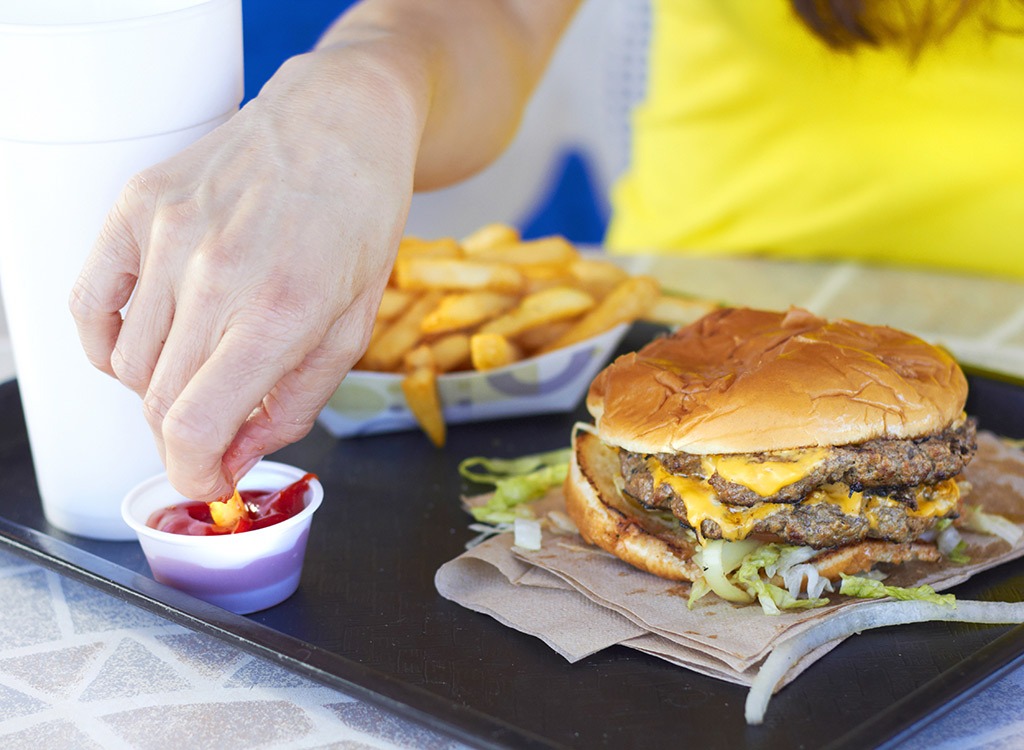
If you drink soda regularly, chances are you also eat a lot of processed foods, according to a study from the University of Illinois. Researchers looked at the diets of over 22,000 Americans over 10 years and discovered that diet drinkers ate more energy-dense, nutrient-poor foods like cookies and ice cream.
It can increase the risk of pancreatic cancer.

Soft drinks have been linked to an increased risk of developing pancreatic cancer, says a study from Singapore in the journal Cancer Epidemiology, Biomarkers & Prevention. The scientists attributed the uptick in cancer cases to the high levels of sugar, which bumps up insulin and encourages cancer cell growth.
It makes your organs fat.

You don't just have to worry about putting on pounds that you can see, like a spare tire around your waist, but also the fat that surrounds your organs, known as visceral fat. Drinking soda and other sugar-sweetened drinks were linked to an increase in this deadly fat, according to a 2016 study in Circulation. This fat, which is thought to boost the risk of diabetes and heart disease risk, was found to be higher in volume in those who drank at least one sugary drink every day.
RELATED: How to Reverse Your Cancer Risk, Say Experts
It increases hunger.

Drinking diet soda might sound like the best way to wean yourself from your sugar cravings and lose a little bit of weight, but research from the University of Sydney found that consuming beverages with an artificial sweetener can actually increase your appetite. The experience of consuming the sweet stuff coupled with a lack of energy supplied can throw your metabolism out of whack and lead to weight gain.
It can increase your risk of gout.

Gout happens when joints become inflamed and extremely painful. It's common in men over 40 who eat a lot of meat and drink alcohol excessively. But research in BMJ has found that the risk of developing gout is linked to high soda consumption among men. The 12-year study reported that men who drank five to six servings of sugary soft drinks a week had an 85 percent higher chance of getting the condition.
It can cause lung problems.

Researchers from the University of Adelaide in Australia have linked asthma and chronic obstructive pulmonary disease (COPD) to soda. In a survey with more than 15,000 people, those who drank at least a half a liter of soft drinks per day had almost two times higher odds of having the lung conditions.
It can shorten your lifespan.

You don't normally equate drinking soda with early death, but a 2013 study presented at an American Heart Association meeting attributed almost 180,000 deaths a year, globally, to beverages that are sweetened with sugar. The breakdown was 133,000 diabetes deaths, 44,000 deaths related to cardiovascular disease, and 6,000 from cancer. In the U.S. alone in 2010, researchers connected 25,000 deaths to sugary drinks.
It can cause mental decline.

While a family history of dementia can put you at risk for Alzheimer's disease, research from Boston University shows that drinking diet soda can affect your cognitive function and make your brain age faster. The researchers cautiously linked consumption of two or more sugary drinks a day to worse memory and lower brain volume, both risk factors for developing Alzheimer's.
It can spur periods sooner.

A 2015 study from the Harvard School of Public Health showed that among 5,583 girls aged 9-14, those who had one and a half servings of sugary drinks a day got their first period almost three months earlier than those girls who drank two or fewer drinks per week.
It's sugar-laden.
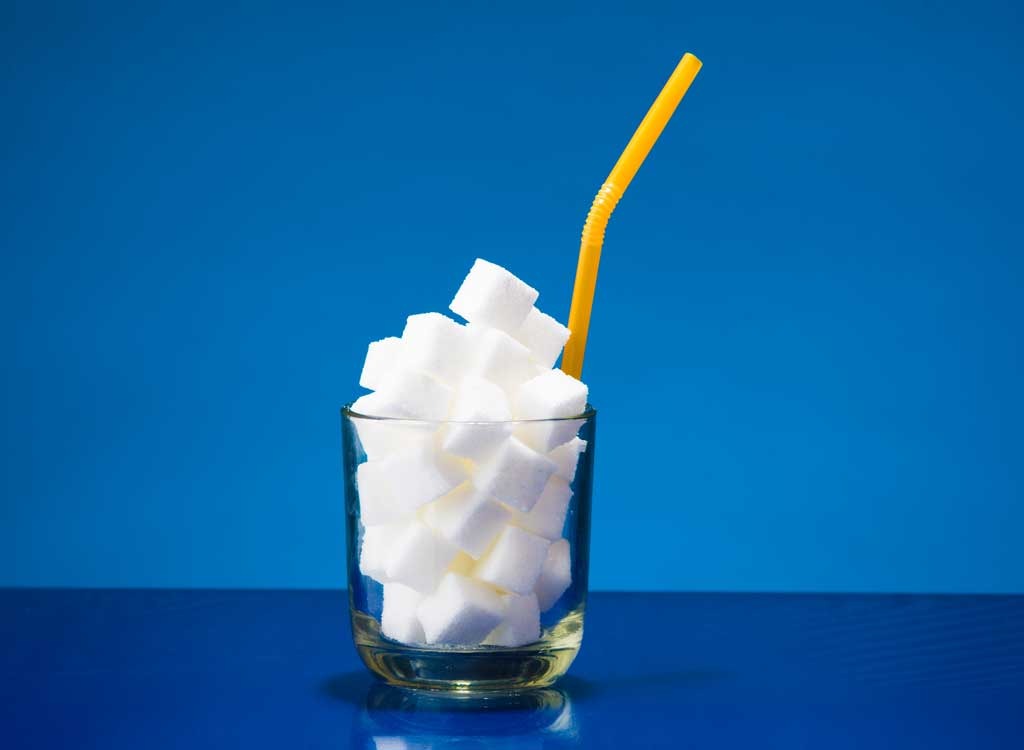
Most people don't realize just how much sugar is in a typical regular soda. Just one 20-ounce serving of soda can have around 16 tablespoons of sugar in it, which is way higher than what the American Heart Association recommends per day. For men, they suggest a maximum of 9 teaspoons, while women should stick to around 6 teaspoons.
It can weaken your bones.

Strong and healthy bones are essential as you age, as falls and the subsequent bad breaks can become a more common occurrence. Getting plenty of vitamin D and calcium can help prevent bone loss, but drinking lots of soda is a good way to weaken your skeleton, according to a study in the American Journal of Clinical Nutrition. Women who drink soda were found to have weaker hip bones.
It can make cells age faster.

Keeping your cells young and healthy is key to a long life, but downing lots of soda can affect cell health, says a 2014 study from UC San Francisco. The scientists discovered that the daily consumption of 20 ounces of soda was related to over four and a half years of DNA aging in cells, which is comparable to smoking.
It doesn't take long for soda to start to wreak havoc on your body.
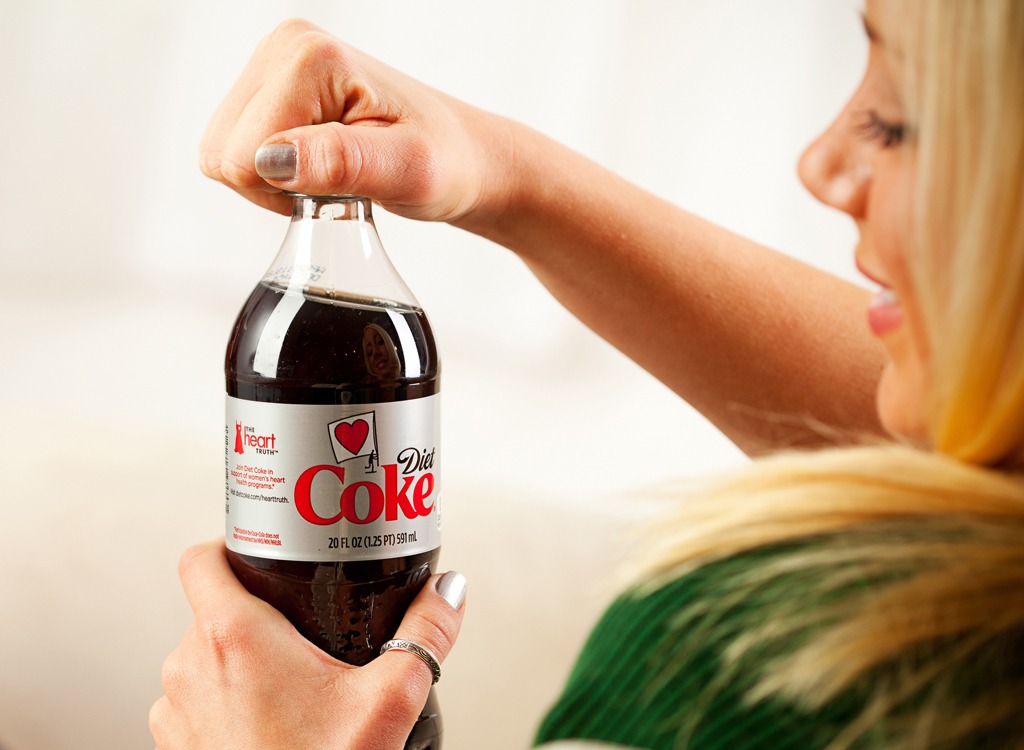
Having a soda binge here and there wouldn't seem like it'd cause much harm to your body, but a 2015 study published in the American Journal of Clinical Nutrition showed that drinking soda for only two weeks can increase your risks for cardiovascular disease. The study tracked people who consumed the syrupy stuff every day for two weeks, in varying amounts, and only those who had zero sweeteners added showed no sign of higher heart disease risk.
Read more about healthy eating habits:
20 Healthy Eating Habits to Lose Weight Right Now

